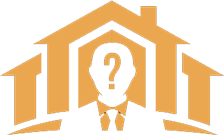
Compare
Real Estate Agents
Ontario 1-613-686-4796
Quebec 1-514-600-6092
ON: 1-613-686-4796
QC: 1-514-600-6092
Compare 3 Real Estate Agents.Find Your Real Estate Agent in 2 mins
+380 Partners across Quebec and Ontario

Compare
Real Estate Agents
Real Estate Agetns Submissions

Need a Real Estate Agent
to buy or sell a property?
Compare 3 Proposals 3 Real Estate Agent in 2 minutes and choose according to your criteria.

Compare 3 Real Estate Agents
Complete the form below and 3 Real Estate Agents will offer you a proposal. Compare: Commission, Service & Personality


How to calculate the profitability of an income property - Method and calculation
Real estate rental has historically been one of the most profitable fields for investors.
After all, everyone needs housing and the cost of living is increasing year by year.
Those who have taken courses in finance or real estate investing know that an income property is a long-term investment that can yield excellent returns.
However, you need to possess certain characteristics to get into real estate because unlike stocks, bonds, and other passive investments, real estate is a proactive investment.
You need to manage your property and it requires time and money.
Nevertheless, it is not uncommon for real estate investors to realize about 25%-30% return per year in the first year.
This is more than you can earn from a mutual fund in the bank, right?
Obviously, the risk is much higher.
With that being said, all aspiring investors ask themselves the same question when they consider investing in real estate!

How is the profitability of an income property calculated?
We’ll say, for a person who has never really ventured into the world of finance and real estate, it is overwhelming to start looking at buildings for sale.
What is important? You look at revenues and expenses but is there anything else to analyze? Are you wondering how you can make money with your building?
Do you think it must be different than other ordinary investments? If you ask yourself these questions, you are well on your way to learning how to calculate the profitability of an income property.
In fact, a real estate investment is not at all the same as a financial investment. Often, if you put your money into financial products, you will receive interest on your capital, dividends, or capital gain. In real estate, it’s different.
A good question to ask yourself is: what makes money in real estate in this case?
The question to ask: what makes money in real estate?
If you decide to invest in real estate for the long-term, it probably means that you are going to buy an income property. Whether it is a rental cottage, a PLEX, or a large building with several apartments, the basic principle is the same – you buy a building that you will rent to generate income. That is how it works!
So, your buildings allow you to generate income thanks to the rent that you collect from your tenants. It is pretty simple! But how does one differentiate one building to another in terms of profitability? How can you calculate the profitability of an income property? To achieve this, you must first understand that there are 3 sources of wealth in real estate!
The 3 sources of enrichment in rental real estate
Well, you now know that investing in real estate usually means buying an income property to rent housing. But how do these revenues contribute to building your wealth? How do you calculate the return on the capital you invest when you buy unit? Do not worry, we’ll get there. But before that, let us first discuss the 3 sources of wealth in rental real estate!
#1: Surplus cash flow
An income property is like a small business. You will have income and expenses. The analysis you need to do first is whether revenues exceed expenses at the end of the year. Generally, it is desirable that the revenues generated by the rent must at least be equal to the expenditures added to the mortgage payments. For example, if your income is $29,000 a year, your expenses are $7,000 a year and your accumulated mortgage payments at the end of the year amount to $22,000, your building will have surplus cash $0 (29,000 – 22,000 – 7,000 = $0).
This is not an ideal situation as your building does not generate any excess income for its expenses. In the short term, this may be acceptable but not in the medium or long-term. A positive cash flow will allow you to get richer each year.
#2: Capitalization (repayment of the mortgage)
When you buy an income property, it would be fantastic if you had sufficient funds to pay the selling price in full with your money. In many cases, however, you will need to take out a mortgage. For example, for a building of $300,000, if you make a 20% down payment, you will have $60,000 in down payment and a mortgage of $240,000. Your mortgage will require mortgage payments each month to repay. With your income property, the rent from your tenants pays for your mortgage.
It is the second source of wealth in real estate. By paying your mortgage, your tenants increase the equity between the value of your property and the balance of your mortgage. When reselling, you will receive cash as profit. For example, you have a mortgage of $240,000 for the first year. By year 10, the balance of your mortgage is $210,000 (hypothetical figure). Your tenants have helped repay the interest on your mortgage in addition to $30,000 in capital, which goes into your pockets. That’s the magic of capitalization!
#3: The surplus value (increase in the value of the building)
In real estate, the value of homes, condos, semi-detached, and all types of properties fluctuates over time. From a long-term perspective, it is historically always positive. If you hold on to your building for 10-15-20-25-30 years, it will increase in value. We have already seen the price of income properties increase by 6% in some cities, and sometimes, the increase is more modest at around 2%. Choosing 2% as a long-term growth rate is realistic and conservative enough.
The third source of real estate enrichment is, therefore, the fact that your income property will increase in value over the years. If we take the example of the building purchased at $300,000, if the growth rate is 2%, it means that it will be worth $306,000 at the end of the first year of retention. This is a gross profit of $6,000 that you will recover if you sell the property. It’s that simple!
Calculating the profitability of an income property – A concrete example and analysis
Well, I think we are ready for a simple example! If you understand the operation of the 3 sources of enrichment, you should easily follow the logic of the calculation. We will take here an example of a profitability analysis for a real building found on Centris by looking at the profit realized after 5 years and the average annual yield.
Below are the main features of the income property:
Type of income property: Triplex
Price of the income property: $300,000
Annual revenue: $24,100
Annual expenditures: $8,400
Annual Mortgage Payment (see calculation below): $13,920
Source of wealth |
Approach (calculation) |
Profit |
Cash flow |
First of all, it is necessary to analyze the income generated by the building versus the expenses.The annual revenue is $24,100.Exclude expenses of $8,400 and mortgage payments totaling $13,920 per year.Cash flow = $24,100 – $8,400 – $ 3,920Cash flow = $ 1,780 per yearCash flow accumulated (year 5): $8,900There is $8,900 in profits over 5 years. |
$8,900 in accumulated capital over 5 years. |
Capitalization |
On the mortgage side, you first have to calculate the annual amount that will be spent (sum of monthly mortgage payments).To find the monthly payment, you can calculate a mortgage of $240,000 since $60,000 will be paid as a down payment on a building that costs $300,000. By amortizing the loan over 25 years at a rate of 3.19%, that results in a monthly mortgage of $1,160 a month or a total of $13,920 a year.Year 1: Mortgage = $ 240,000Year 5: Mortgage balance = $ 205,900The principal repayment on the mortgage over the 5 years was $ 34,100. |
$34,100 of capital repaid over 5 years |
Capital gains |
Let us assume here that the income property was purchased at its fair market value of $300,000. Considering a growth rate of 2% per year, it is easy to calculate the value of the building at year 5.Value year 5: $300,000 x (1,02) ^ 5Value year 5: $331,225Increase in value: $31,225 |
$31,225 in value increase over the 5 years. |
Gross profit at year 5 |
$74,225 |
|
Average Annual Gross Profit = (Gross Profit Year 5/5) |
$14 845$ |
|
Initial investment (capital invested) |
$60,000 |
|
| Average annual return on down payment over 5 years (Average annual gross profit /down payment) | 24.75% |
As the table above shows, the profitability analysis revolves around the 3 previously presented sources of wealth. This allows you to see that by adding the profits made in cash flow, capitalization, and capital gains, we can obtain a very interesting return. For the selected property, the average annual return on the down payment is 24.75% per annum. This shows that the building has a good margin of profitability.
Many investors are wondering what return they can expect to achieve by investing in real estate. Well, we often talk about higher returns than 20%, and the lower the down payment, the higher the return. Some investors manage to get unlimited returns by not putting down any down payment. These clever investors use leverage as much as possible and use slightly more complex strategies.
It is also possible to invest in real estate by becoming an owner-occupant and take advantage of lower down-payment requirements and potentially free housing.
Nevertheless, by making a traditional down payment of 20%, it is possible to obtain excellent returns when all is well. Of course, when the market is down or when we are dealing with bad tenants, the yield can be significantly lower. In real estate, there is no guaranteed yield! On the other hand, if you find the right buildings and pay the right price, you can make a significant profit!
The method presented to you above can be applied to all income properties in order to calculate briefly and quickly their profitability. On the other hand, more complex and complete methods exist and make it possible to better determine the potential profitability of a building. Nevertheless, the method presented is excellent for all initial analyses and should be managed by all real estate investors.
Finally, if you want someone to help you calculate the profitability of an income property, it is in your best interest to consult a real estate broker.
When you want to buy a building, it is absolutely FREE to team up with a broker. The only challenge is to find the best brokers in your area!
Fortunately, we have the solution for you!
Find and compare the best multi-unit real estate brokers in your area!

If you are looking for an income property, why waste your time doing everything yourself when a professional could do it for you for FREE!
In fact, you can simply ask a real estate broker to find the properties that meet your criteria and he will do the research and conduct profitability analyses. Why will you pass up this very useful service?
Finding the best brokers is simple. Our platform Compare Real Estate Agents offers you the opportunity to connect with the best broker by filling out a short online form to receive free quotes from several brokers in your area. You can easily compare their profiles, personalities, and more in just a few clicks!
If you feel unsure if you need a broker, check out the benefits of working with a qualified broker or realtor as explained by the Canadian Real Estate Association (CREA).
This service is completely free and no-obligation, and will save you time while ensuring that you work only with a qualified, certified, and verified professional!
Try it and start looking for profitable income properties in your area!
With this new information, it should now be easier to identify buildings with great potential for profitability! Consult our top 15 brokers to get access to the best income properties in Gatineau.
RECEIVE PROPOSALS FROM 3 PASSIONATE AGENTS AND CHOOSE FREELY THE BEST ONE FOR YOU
Buying or selling a property has a direct impact on your budget and your quality of life. This is why it is so important to have the right person assisting you. Use our service to find a real estate professionnal who truly meets your expectations.


Compare 3 Real Estate Agents
Complete the form below and receive proposals from 3 real estate agents. Compare : Commission, Service and Personality

